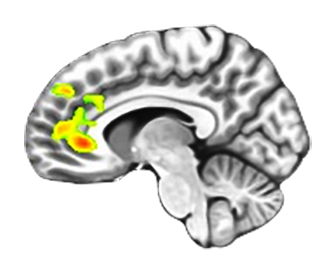Functional Brain Imaging Shows How Maltreatment Affects Brain Development
Thursday, June 20, 2019
Boys Town is recognized as a world leader in caring for kids in trouble, many of whom have been subjected to childhood trauma. Boys Town National Research Hospital is also home to research investigating the impacts of maltreatment on developing brains. Karina Blair, Ph.D. and her team at Boys Town Hospital recently published a paper titled,
Association of Different Types of Childhood Maltreatment
With Emotional Responding and Response Control Among Youths [1] that examines some of these issues.
Specifically, the authors looked at measures of brain function and behavior for 116 young people from 10–18 years of age who reported and rated their personal experiences with different types of abuse and neglect. The children and adolescents were either enrolled in Boys Town programs or from the surrounding community, and their families gave consent to the study with the option to withdraw at any time. The kids' brain activity was monitored while they performed a number counting task in the presence of distracting emotional images. This allowed Dr. Blair to determine the association of different forms of maltreatment on brain systems critical for task performance as well as emotional responding.
The main findings of this study were the association of abuse, rather than neglect—at least, within this group of participants—with both difficulties with response control and heightened emotional responding. Moreover, physical abuse was particularly associated with heightened threat responding. Sexual abuse was associated with a cascade of difficulties that were present even after the influence of other forms of maltreatment was statistically accounted for (Figure 1).

Figure 1. The anterior cingulate region of the brain is importantly involved in emotional processing and shows overly increased responding in kids who have suffered sexual abuse. The colored areas in this image show the regions showing greater responding in kids who have suffered sexual abuse relative to those who have not. The “hotter" the color, the more overly responding the region.
These findings are important because we know these kids need help. They may find themselves in dangerous situations and sometimes legal trouble. We need to understand exactly what problems they face. Understanding their brain level-difficulties are part of the picture. Moreover, the findings of this work suggest that maltreatment may have different impacts according to the form of maltreatment. Indeed, sexual abuse may be associated with particularly severe brain-level difficulties. Potential findings such as these may become the basis for assessing treatment success at the level of the individual. For a much more detailed description of their findings
see the article in JAMA Network Open [1].
References
- Blair KS1, Aloi J2, Crum K3, Meffert, et. al. (2019)
Association of Different Types of Childhood Maltreatment
With Emotional Responding
and Response Control Among Youths, 2019
2(5). JAMA Netw Open.
